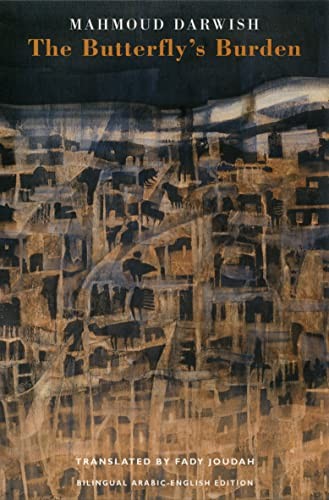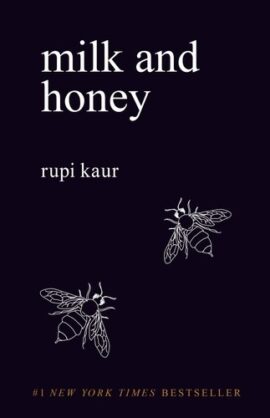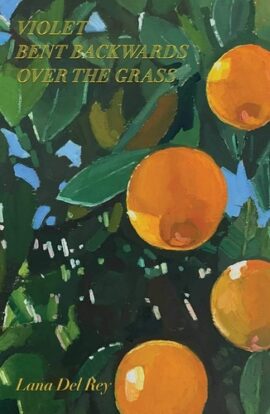The Butterfly’s Burden
4.600,00 د.ج
Mahmoud Darwish (1942-2008) was the poetic voice of the Palestinian people. One of the most acclaimed contemporary poets in the Arab world, he was also a prominent spokesman for human rights who has spent most of his life in exile. In his early work, the features of his beloved land – its flowers and birds, towns and waters – were an integral part of poems witnessing a string of political and humanitarian tragedies afflicting his people. In his most recent books, his writing stands at the border of earth and sky, reality and myth, poetry and prose. Returning to Palestine in 1996, he settled in Ramallah, where he surprised his huge following in the Arab world by writing a book of love, The Stranger’s Bed (1998), singing of love as a private exile, not about exile as a public love. A State of Siege (2002) was his response to the second Intifada, his testament not only to human suffering but to art under duress, art in transmutation. The 47 short lyrics of Don’t Apologise for What You’ve Done (2003) form a transfiguring incarnation or incantation of the poet after the carnage. The Butterfly’s Burden is a translation of these three recent books, and was awarded the Saif Ghobash-Banipal Prize for Arabic Literary Translation in 2008. Mahmoud Darwish died in Houston, Texas, in August 2008 from complications following heart surgery. Palestinian President Mahmoud Abbas immediately declared three days of national mourning to honour the great Arab writer. Winner of the Saif Ghobash-Banipal Prize for Arabic Literary Translation. Bilingual Arabic-English edition
Mahmoud Darwish (1942-2008) was the poetic voice of the Palestinian people. One of the most acclaimed contemporary poets in the Arab world, he was also a prominent spokesman for human rights who has spent most of his life in exile. In his early work, the features of his beloved land – its flowers and birds, towns and waters – were an integral part of poems witnessing a string of political and humanitarian tragedies afflicting his people. In his most recent books, his writing stands at the border of earth and sky, reality and myth, poetry and prose. Returning to Palestine in 1996, he settled in Ramallah, where he surprised his huge following in the Arab world by writing a book of love, The Stranger’s Bed (1998), singing of love as a private exile, not about exile as a public love. A State of Siege (2002) was his response to the second Intifada, his testament not only to human suffering but to art under duress, art in transmutation. The 47 short lyrics of Don’t Apologise for What You’ve Done (2003) form a transfiguring incarnation or incantation of the poet after the carnage. The Butterfly’s Burden is a translation of these three recent books, and was awarded the Saif Ghobash-Banipal Prize for Arabic Literary Translation in 2008. Mahmoud Darwish died in Houston, Texas, in August 2008 from complications following heart surgery. Palestinian President Mahmoud Abbas immediately declared three days of national mourning to honour the great Arab writer. Winner of the Saif Ghobash-Banipal Prize for Arabic Literary Translation. Bilingual Arabic-English edition
| Editeur |
|---|
Produits similaires
Love Is a Dog from Hell
A book that captures the Dirty Old Man of American letters at his fiercest and most vulnerable, on a subject that hits home with all of us. Charles Bukowski was a man of intense emotions, someone an editor once called a “passionate madman.” Alternating between tough and gentle, sensitive and gritty, Bukowski lays bare the myriad facets of love—its selfishness and its narcissism, its randomness, its mystery and its misery, and, ultimately, its true joyfulness, endurance, and redemptive power.
"there is a loneliness in this world so great
that you can see it in the slow movement of
the hands of a clock."
Crush
“One of the best books of contemporary poetry.”—Victoria Chang, Huffington Post
“Vital, immediate, and cinematic in scope.”—Library Journal (Best Poetry of 2005)
Selected by Nobel Prize laureate and competition judge Louise Glück as the 2004 winner of the Yale Younger Poets prize, Richard Siken’s Crush is a powerful collection of poems driven by obsession and love. Siken writes with ferocity, and his reader hurtles unstoppably with him. His poetry is confessional, gay, savage, and charged with violent eroticism. In the world of American poetry, Siken's voice is striking.
In her introduction to the book, Glück hails the “cumulative, driving, apocalyptic power, [and] purgatorial recklessness” of Siken’s poems. She notes, “Books of this kind dream big. . . . They restore to poetry that sense of crucial moment and crucial utterance which may indeed be the great genius of the form.”
Home Body
i dive into the well of my body
and end up in another world
everything i need
already exists in me
there’s no need
to look anywhere else
– home
Milk and Honey
“Rupi Kaur is the Writer of the Decade.” – The New Republic
A hardcover gift edition of milk and honey, the #1 New York Times bestselling poetry and prose collection by rupi kaur, which has sold over 3 million copies worldwide. milk and honey is a collection of poetry and prose about survival. About the experience of violence, abuse, love, loss, and femininity.
This clothbound edition features deckled edge paper, a woven ribbon marker, and a foreword written by the author. The book is divided into four chapters, and each chapter serves a different purpose. Deals with a different pain. Heals a different heartache. milk and honey takes readers through a journey of the most bitter moments in life and finds sweetness in them because there is sweetness everywhere if you are just willing to look.
The Nectar of Pain
In The Nectar of Pain, Zebian sheds light on the feelings and experiences that emerge from a painful heartbreak. She writes that the process of cleansing oneself of that pain—day by day, hour by hour, and second by second—is the real work of healing.
With uncommon warmth and wisdom, Zebian empowers all who have lost to let go of anger and transform their suffering into the softness, sweetness, and beauty of nectar. She holds her readers by the hand as they heal.
Milk and Honey
“Rupi Kaur is the Writer of the Decade.” – The New Republic
#1 New York Times bestseller milk and honey is a collection of poetry and prose about survival. About the experience of violence, abuse, love, loss, and femininity.
The book is divided into four chapters, and each chapter serves a different purpose. Deals with a different pain. Heals a different heartache. milk and honey takes readers through a journey of the most bitter moments in life and finds sweetness in them because there is sweetness everywhere if you are just willing to look.
Mind Platter
Mind Platter is a compilation of reflections on life as seen through the eyes of an educator, student, and human who experienced her early days in silence. It is written in the words of a woman who came from Lebanon to Canada at the age of sixteen and experienced what it was like to have fate push her to a place where she didn't belong. It is written in the voice of every person who has felt unheard, mistreated, misjudged, or unseen.
The book contains over 200 one-page reflections on topics we encounter in our everyday lives: love, friendship, hurt, inspiration, respect, motivation, integrity, honesty, and more. Mind Platter is not about the words it contains, but what the reader makes of them. May this book give a voice to those who need one, be a crying shoulder for those who yearn for someone to listen, and inspire those who need a reminder of the power they have over their lives.
Violet Bent Backwards Over the Grass
THE HIGHLY ANTICIPATED DEBUT BOOK OF POETRY FROM LANA DEL REY, VIOLET BENT BACKWARDS OVER THE GRASS
'Violet Bent Backwards Over the Grass is the title poem of the book and the first poem I wrote of many. Some of which came to me in their entirety, which I dictated and then typed out, and some that I worked laboriously picking apart each word to make the perfect poem. They are eclectic and honest and not trying to be anything other than what they are and for that reason I’m proud of them, especially because the spirit in which they were written was very authentic. Lana Del Rey
Lana’s breathtaking first book solidifies her further as 'the essential writer of her times' (The Atlantic). The collection features more than thirty poems, many exclusive to the book: Never to Heaven, The Land of 1,000 Fires, Past the Bushes Cypress Thriving, LA Who Am I to Love You?, Tessa DiPietro, Happy, Paradise Is Very Fragile, Bare Feet on Linoleum and many more. This beautiful hardcover edition showcases Lana’s typewritten manuscript pages alongside her original photography. The result is an extraordinary poetic landscape that reflects the unguarded spirit of its creator.
Violet Bent Backwards Over the Grass is also brought to life in an unprecedented spoken word audiobook which features Lana Del Rey reading fourteen select poems from the book accompanied by music from Grammy Award-winning musician Jack Antonoff.









